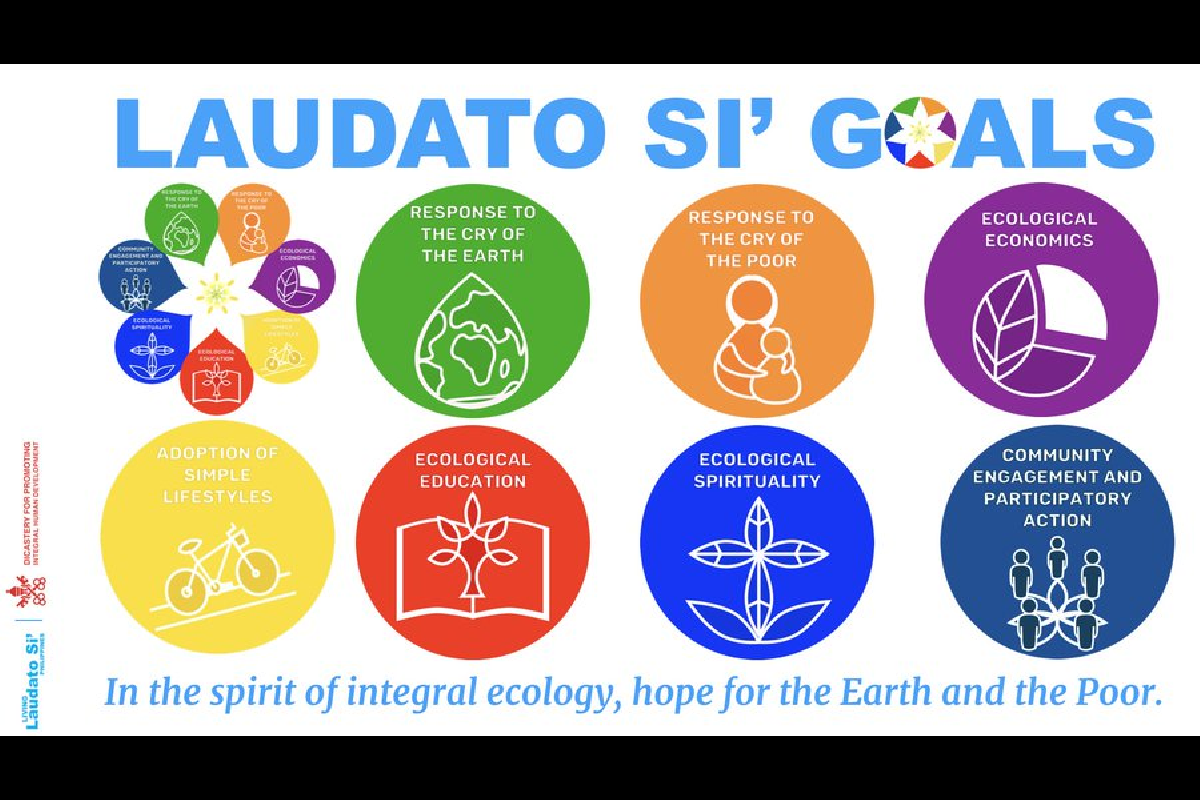As humanity faces its greatest existential crisis, Pope Francis is transforming the way Catholics think of their place in reation.
Laudato Si’, Pope Francis’ environmental encyclical, begins by acknowledging that “Many things have to change course, but it is we human beings above all who need to change.” The path to change comes through education and spirituality. “We lack an awareness of our common origin, of our mutual belonging, and of a future to be shared with everyone,” he asserts. “This basic awareness would enable the development of new convictions, attitudes and forms of life.”
The problem is that compulsive consumerism “leads people to believe that they are free as long as they have the supposed freedom to consume,” but “obsession with a consumerist lifestyle, above all when few people are capable of maintaining it, can only lead to violence and mutual destruction.”
“Yet, all is not lost,” believes Francis, “Human beings, while capable of the worst, are also capable of rising above themselves, choosing again what is good, and making a new start, despite their mental and social conditioning.” But this requires our taking an honest look at ourselves and changing our lifestyle.
Environmental education is important in developing this spirituality. It should include “scientific information, consciousness raising and the prevention of environmental risks” as well as “a critique of ‘myths’ of a modernity grounded in a utilitarian mindset (individualism, unlimited progress, competition, consumerism, the unregulated market).”
Education must “promote a new way of thinking about human beings, life, society and our relationship with nature,” says Francis. “Otherwise, the paradigm of consumerism will continue to advance with the help of the media and the highly effective workings of the market.”
Environmental education must lead to a change in lifestyle, including “avoiding the use of plastic and paper, reducing water consumption, separating refuse, cooking only what can reasonably be consumed, showing care for other living beings, using public transport or car-pooling, planting trees, turning off unnecessary lights, or any number of other practices.”
“Inner peace is closely related to care for ecology and for the common good because, lived out authentically, it is reflected in a balanced lifestyle together with a capacity for wonder which takes us to a deeper understanding of life,” explains Francis. “Nature is filled with words of love, but how can we listen to them amid constant noise, interminable and nerve-wracking distractions, or the cult of appearances?”
“An integral ecology is made up of simple daily gestures which break with the logic of violence, exploitation and selfishness,” but it is also civic and political and “makes itself felt in every action that seeks to build a better world.”
“Love for society and commitment to the common good are outstanding expressions of a charity which affects not only relationships between individuals but also ‘macro-relationships, social, economic and political ones,’” he says. This “social love moves us to devise larger strategies to halt environmental degradation and to encourage a ‘culture of care’ which permeates all of society.” By addressing issues like water shortages, pollution and global inequality in stark terms, Pope Francis calls for us to change our lifestyle.
As Pope Francis pointed out, “those who are suffering the most from environmental degradation are the poor, people on the margins.” We are collectively witnessing how the COVID-19 pandemic has turned the world upside down. A darker reality, however, has simultaneously emerged – one that has always lurked in the background: it is the poorest citizens of India, the ones who already face the brunt of India’s massive inequalities, who have suffered the most from this pandemic’s lasting effects.
Pope Francis’ ground-breaking encyclical, now six years old, evoked the need for “a renewed sense of shared responsibility for our world”, adding that “each of us – whoever and wherever we may be – can play our own part in changing our collective response to the unprecedented threat of climate change and the degradation of our common home.”
EduFOCUS, the magazine of the Archdiocese of Bombay, is helping school staff and students to think more critically about their role as stewards of creation, challenging our way of life and embracing a less consumer-driven lifestyle, encouraging each one to live sustainably as much as possible. Reusing our belongings, recycling, growing a garden, and using a refillable water bottle are some things students and staff can do. Our everyday choices can make a difference.
Nirmala Carvalho has been a Crux correspondent since 2004 and, in 2006, won the Communications Award from the Catholic Bishops Conference of India for “exceptional sensitivity to the Church and minority-related issues”. She holds a bachelor’s degree in philosophy and a master’s degree in sociology, both from the University of Mumbai.
